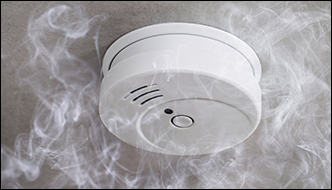
Carbon monoxide (CO) is a colorless, odorless gas that can be deadly if inhaled in large amounts. It is produced by the incomplete burning of carbon-containing fuels, such as wood, gasoline, propane, natural gas, and heating oil. Here are some important precautions to take to prevent carbon monoxide poisoning in your home:
- Install Carbon Monoxide Detectors: Place CO detectors on every level of your home and outside each sleeping area. Test the detectors regularly and replace the batteries at least twice a year.
- Proper Ventilation: Ensure that all fuel-burning appliances (furnaces, stoves, water heaters, and clothes dryers) are properly installed, vented, and maintained. Never use these appliances in enclosed spaces, especially without proper ventilation.
- Regular Maintenance: Have heating systems, chimneys, and flues inspected and serviced annually by a qualified technician. This includes cleaning and checking for blockages.
- Avoid Using Gasoline Engines Indoors: Do not run gasoline engines (such as cars or generators) in enclosed spaces, even if the garage door is open. The fumes can enter your home and cause CO poisoning.
- Barbecue Grills: Use charcoal and gas grills outdoors only. Using them indoors can lead to a buildup of CO.
- Space Heaters: If you use a fuel-burning space heater, make sure it is vented properly and placed in a well-ventilated area. Electric space heaters are a safer option, but still, ensure they are not blocking any vents and are placed in safe locations.
- Fireplaces: Make sure your fireplace flue is open when in use and have regular inspections to ensure there are no blockages.
- Car Exhaust: Never warm up your car in the garage, even if the garage door is open. Always move the car outside to let it warm up.
- Educate Family Members: Make sure everyone in your household is aware of the dangers of carbon monoxide and knows the symptoms of CO poisoning, which include headache, dizziness, weakness, upset stomach, vomiting, chest pain, and confusion.
- Emergency Preparedness: Know the emergency procedures for your home, including where to go and who to contact if a CO detector goes off or if symptoms of CO poisoning are experienced.
- Seek Prompt Medical Attention: If you suspect CO poisoning or your CO detector goes off, leave your home immediately and seek medical attention. CO poisoning can be life-threatening, and prompt treatment is essential.
By taking these precautions and being vigilant about the potential sources of carbon monoxide in your home, you can significantly reduce the risk of CO poisoning for you and your family.
